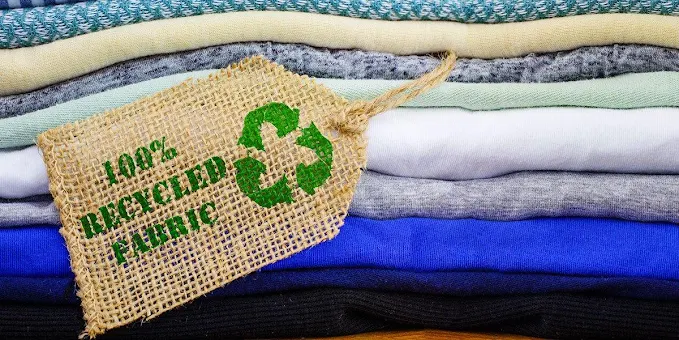Sustainable Fabrics for the Most Eco-Friendly Fashion
Everyone these days talk abut being eco-friendly or using such products. Being on the fourth spot of creating pollution as per the statistics,
Fashion world is also trying to make changes in its consumption and practices for a greener planet.
Curbing the age old techniques and better production practices are required as the long-term impact of fashion can be detrimental to the environment and society. Also, fashion trends changes with the blink of an eye which over production and under consumption.
By choosing eco-friendly fabrics alone, you are taking a big step towards a more sustainable wardrobe. In order to promote a more sustainable and ethical fashion industry, it is important to understand the different types of fabrics. What makes a fabric sustainable and how to know if a fabric is truly sustainable. Let's find out!
 |
| Sustainable fabrics for the most eco-friendly fashion |
SUSTAINABLE CLOTHING: Know More About Game Changing Fabrics
Sustainable clothing means that all garments are produced, manufactured and processed in an ecological and socially responsible manner. It also takes into account the eco-consciousness and ethical fashion choices. The concept of sustainable fashion includes respect for people, the planet, and all living things. As charity begins at home, so does sustainability.
One of the major reasons for doing is saving our natural resources as 97% of the new resource is being used for manufacturing a new piece of garment and only 3% recycled material is used. In turn this reduces the carbon print also. Another big reason is saving animal life with the slaughtering of millions of animals is done for fur, leather, etc. As we love ourselves sustainable practices make us love our clothes again.
As a first step, the Fashion industry has started manufacturing game-changing fabrics. A few of them are:
- Organic Cotton: The cotton fabric that is produced without the use of any of fertilizers, pesticides or any transgenic technology. To secure the crop from pests, farmers generally use the crop rotation method. India produces almost 50% of global organic cotton. Some of the companies like doodlage, No-nasties, B-label chooses to be green with major use of organic cotton for their garment business.
- Bamboo Fabrics: Also known as Bamboo rayon, bamboo Viscose, these materials are made from extracting semi-synthetic cellulose from bamboo fibers. One of the major pros is that It is possible to harvest organic bamboo without destroying the plant and renewing rapidly. Extraction done through the non-cellulose method produces bamboo linen with a soft texture. An enzyme is used in the process of washing and spinning bamboo wood fibers into yarn. The materials are mainly used in textiles and furnishings.
- Econyl: The material is developed by the Italian company Aquafil. By recycling and recycling synthetic waste from the ocean, such as industrial plastics, waste fabrics, and fishing nets, it creates nylon yarn that has the same quality as virgin nylon. A greener step towards better environment.
- Lycocell: It's a semi-synthetic fabric used in place of cotton or a few times for silk. Its basically a type of rayon made from the extraction of wood cellulose and synthetic substances. The consumption of water while production is very less as compared to other fabrics.
- Modal: The bio fabric is made from spinning cellulose from beach trees. Beach tree fibers require very less water which makes it an extremely environment friendly option. It has softness of silk and smoothness of cotton. Also it needs minimum ironing. The fabric serves one of the best options for making t-shirts and sporting materials.
These fabrics have changed the landscape of fabrics produced in textile industries. Many fabrics such as rose petal silk, algae bioplastic, sweat crystals, pineapple leather and soy cashmere will be future. Awareness is the best shot for using such fabrics. One can find all these fabrics on eCommerce website at the comfort of your home. Happy fabric shopping.
